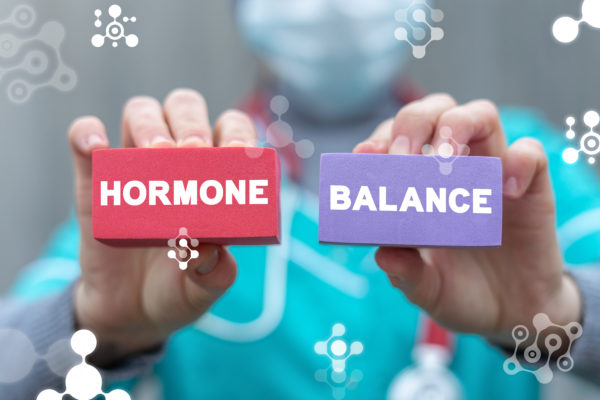Are you feeling run down, constantly fatigued, and moody? You may be suffering from hormonal imbalance, a condition that can be treated with testosterone replacement therapy (TRT).
TRT is a safe and effective way to boost your energy, libido, and overall well-being. In this guide, we will discuss the basics of testosterone replacement therapy for women. We will cover the information you need about HRT options for women, Gh therapy options for women, and how to get hormone replacement as a woman. We will also discuss the process of getting started with hormone replacement therapy.
What is testosterone replacement therapy?
TRT is a therapy that involves the replacement of testosterone in women who have been diagnosed with low testosterone levels. Testosterone is an essential hormone for both men and women, and it plays a key role in maintaining energy levels, libido, moods, and overall health.
How do you know if you need testosterone replacement therapy?
If you are experiencing any of the following symptoms, you may benefit from testosterone replacement therapy:
Decreased libido or sex drive
Having a low sex drive is one of the most common signs that you may have a hormonal imbalance. When your testosterone levels are too low, it can affect your libido and make it difficult for you to perform sexually.
Fatigue or decreased energy
Another common symptom of hormone imbalances in women is fatigue or lack of energy. If you constantly feel tired and struggle with fatigue, then TRT may be right for you.
Weight gain or inability to lose weight
Hormone imbalances can cause weight gain because they disrupt the body’s ability to burn fat effectively. This makes it harder for people who are experiencing these symptoms but don’t know why; this could mean their hormones need balancing out through testosterone replacement therapy.
Mood swings and irritability
Hormone imbalance can also cause mood swings and irritability. If you are feeling more short-tempered than usual or having a hard time controlling your emotions, hormone replacement therapy may be for you.
Hair loss or thinning hair
Hormone imbalance can also cause hair loss or thinning hair. If you are starting to experience bald patches or your hair is growing thinner, testosterone replacement therapy may be the answer.
Difficulty sleeping
Hormone imbalance can also cause difficulty sleeping. If you are having trouble falling asleep or staying asleep, hormone replacement therapy may be the answer to your problems.
Dry Skin
As women age, their testosterone levels drop drastically. This results in drier skin. Women with low testosterone levels may notice that they have unusually dry skin.
Are there risks involved with testosterone replacement therapy?
The side effects of TRT include acne breakouts and mood swings in some women; however, most patients experience no negative symptoms at all due to this treatment method!
This is because any potential downsides come from using “synthetic” hormones (i.e., manmade chemicals that mimic natural ones) rather than naturally-derived sources like bioidentical hormones or herbs such as Tribulus Terrestris extract which won’t produce any adverse reactions when taken orally by mouth instead of injection needles.
TRT options for women
There are a few different options for testosterone replacement therapy for women. The most common TRT option for women is hormone replacement therapy (HRT). HRT involves the use of estrogen and progesterone to replace the hormones that are lost during menopause.
Another option is Human Hormone Growth (HGH). HGH involves the injection of human growth hormone into the body to increase energy levels, libido, and overall health.
The types of HRT options for women
There are three primary types of HRT options for women: oral, transdermal, and vaginal.
Oral HRT
Oral HRT is a form of HRT that is taken in pill or capsule form. The most common type of oral HRT for women is estrogen and progesterone, which are combined with testosterone to create a balanced hormone replacement therapy.
Transdermal HRT
Transdermal HRT is a form of hormone replacement that involves the application of hormones to the skin. There are a few different types of transdermal HRT, including patches, gels, and creams.
Vaginal HRT
Vaginal HRT is a form of hormone replacement that involves the insertion of hormones into the vagina. Vaginal hormones can be in the form of a cream, tablet, or ring.
The types of HGH options for women
In women, Human growth hormone therapy does a variety of things, especially in older women. This kind of hormone can be a great way to reduce fat and preserve muscle mass while also improving bone density. Additionally, it can help with skin elasticity and hair strength. There are two primary types of HGH options for women: injections and nasal sprays.
Gh therapy injections
Gh therapy injections involve the injection of human growth hormone into the body to increase energy levels, libido, and overall health. Doctors prescribe growth hormone for women who are HGH deficient.
The Growth Hormone Deficiency in Adult Women demonstrated that those with low levels of the hormone experience fatigue, hair loss, weight gain, depression, and more because they do not have the normal level. It can be helpful for older women by helping to strengthen bones. It can also increase lean muscle mass and improve metabolism.
Growth hormones are not a treatment for infertility in women, but it can help to restore energy, heighten metabolism, reduce body fat, especially around the belly, and enhance body development or shape.
Gh therapy nasal sprays
Gh therapy nasal sprays involve the inhalation of human growth hormone into the body. Same with the Gh therapy injections, it is also used by women who need help rebuilding their muscles after menopause or that have trouble gaining muscle mass.
Growth hormone nasal sprays are easy to use. Treatment options have become more flexible, including options that are specially designed to be administered through the nose.
How do I get started with hormone replacement therapy?
If you think that you may be suffering from a hormonal imbalance and would like to explore testosterone replacement therapy (TRT) as an option, talk to your doctor. He or she will perform a blood test to measure your levels of testosterone and other hormones and will help you decide if TRT is the right treatment for you.
If it is determined that TRT is the best course of treatment for you, your doctor will create a personalized treatment plan that fits your specific needs. This plan may include one or more of the following: oral, transdermal, or vaginal hormones; regular blood tests to monitor your hormone levels; and/or lifestyle changes like diet and exercise.
Getting started with hormone replacement therapy can seem daunting, but with the help of your doctor, you can make the process easy and comfortable. Talk to your doctor today to learn more about TRT and how it may be able to improve your quality of life.
How can TRT help women’s health issues?
Testosterone levels for women decline after menopause in a natural but significant manner. For both genders, testosterone is important in sexual functioning, libido, and other significant body functions. Moreover, It is especially helpful for maintaining muscle mass, bone density, and strength in women. Women who are experiencing health issues related to low testosterone may benefit from the use of testosterone supplementation therapy.
What are the benefits of testosterone replacement therapy?
There are many benefits to testosterone replacement therapy for women. Some of the most common benefits include:
- Increased energy levels
- Improved libido or sex drive
- Better moods and decreased anxiety or depression
- Stronger bones due to increased bone density
- Healthier skin and hair
- Reduced risk of heart disease and other chronic conditions
It is important to note that not all women will experience all of these benefits. Some women may only see a few improvements, while others may see significant changes in their health and well-being. Speak to your doctor to learn more about the specific benefits that you could experience from TRT.
Myths about Testosterone Replacement Therapy in Women
Are you considering testosterone therapy to treat symptoms like low libido, fatigue, or mood swings? If so, it’s important to get the facts before you make a decision. Many myths are circulating about testosterone therapy in women, and it’s important to separate facts from misconceptions. We will debunk some of the most common myths about testosterone therapy for women.
Myth: Men and women produce the same amount of testosterone.
Fact: Women produce a small amount in their ovaries, adrenal glands, and fat cells. This is much lower than in men, though it varies from woman to woman. However, when that number goes up even slightly in men or women due to any number of reasons, it can cause several side effects.
Myth: Testosterone therapy would make women behave like men.
Fact: Testosterone therapy increases sex drive in both men and women, although it might increase the intensity of the person’s sexual urges to match their increased libido. In general, however, testosterone does not affect the way a person acts.
Myth: Testosterone therapy would make women grow facial hair and develop other male characteristics.
Fact: It is possible for testosterone to affect female body hair, but not in any predictable or controllable way. There are cases where it causes existing hairs to thicken and even grow dark, causing women to claim that their facial hair is “growing back darker.” However, there are other cases where it just causes the existing hairs to fall out.
Myth: Testosterone therapy would cause women’s breasts to shrink or get smaller.
Fact: Like with female body hair, testosterone therapy does not have any effect on breast tissue growth or shrinkage.
Myth: Testosterone therapy causes aggression in people.
Fact: It depends on the person, but testosterone therapy has been found to increase emotional arousal, making it more likely for someone to act aggressively than before they started therapy. However, since testosterone does not affect a person’s behavior directly, there is no real reason for a woman to be afraid of becoming violent.
Myth: Testosterone therapy would cause women to become bald or lose their hair.
Fact: Unfortunately, this is not an unfounded fear. Testosterone can cause the body to stop producing estrogen and other sex hormones, including those that protect hair follicles from shrinking and dying. This leads to hair loss or even complete baldness, but women can take estrogen supplements to prevent this side effect.
Myth: All the risks of testosterone therapy are worse for women than men.
Fact: The only difference in side effects is that women are more likely to end up with male pattern baldness when they take testosterone, while men are more likely to experience infertility. However, this is not an issue for women because they can take estrogen supplements to protect their hair follicles from becoming weak and dying.
Myth: Testosterone therapy would strip a woman’s femininity.
Fact: Since testosterone therapy does not change a person’s behavior or the way they act, it will not make a woman any less feminine. It is possible for women to experience more femininity after starting therapy if they finally feel free to express their higher sex drives.
Myth: Menopausal women do not need testosterone therapy because the condition is natural.
Fact: Hormone imbalances can be caused by menopause regardless of whether it is natural or not. Hormone replacement therapy can improve quality of life and mood, so women should talk to their doctors about this option regardless of the stage in their lives.
Myth: Menopausal women cannot take testosterone because it would be dangerous.
Reality: There are no reported dangers of menopausal women taking testosterone, although it should be noted that those who are pregnant or at risk of breast cancer should avoid hormonal replacement therapies. Otherwise, menopause and testosterone do not mix well and should be kept separate from each other.
Myth: Testosterone therapy would only benefit men, not women.
Fact: Although testosterone therapy can help improve some issues that are unique to men, such as low sex drive and erectile dysfunction, it has many benefits for women as well, including increasing energy levels.
Myth: Testosterone therapy can only treat a physical condition.
Fact: Of course, testosterone therapy is often used to help with issues caused by a hormone deficiency in the body, but doctors have also been prescribing it for women who are going through menopause because of health problems related to low levels of testosterone in the body.
Furthermore, testosterone can provide benefits to women who are suffering from depression due to low levels of the hormone in their body, which is often linked with menopause.
Who should consider TRT therapy for women?
Testosterone works well for post-menopausal symptoms because it’s similar to estrogen. Estrogen therapy for women is known to reduce anxiety. It works by providing the brain with serotonin, norepinephrine, and dopamine which are mood-regulating neurotransmitters that contribute to overall feelings of well-being. While testosterone also helps boost these chemicals in the brain, it also improves the functions of other systems in the body.
Testosterone replacement therapy can improve bone density and reduce osteoporosis, which is a common concern among post-menopausal women. It can also help with anxiety, better concentration and focus, more energy, deeper sleep patterns, increased libido, and an overall greater sense of well-being.
Studies have shown that this hormone can help increase muscle mass. It can also help fight against insulin resistance, and improve libido as well as sex drive. Women can experience a decline in testosterone levels after menopause. This may be one reason why women often show signs of decreased sexual desire during menopause, and this is something that they want to change.
How can you find a qualified expert to prescribe TRT therapy for you as a woman?
A doctor who specializes in hormone replacement therapy can help women with these symptoms by prescribing natural testosterone which they will need to take every day through injections or creams. This is usually done through specialized hormone clinics.
Women who are interested in taking natural testosterone should consult a doctor first who has extensive experience prescribing the medication to optimize its effectiveness without any risk of complications.
Many certified anti-aging clinics have been conducting Testosterone Replacement Therapy for both men and women. Nevertheless, it is important to discuss your symptoms and any concerns with them before deciding on hormone treatment.
Takeaways
If you’re a woman and are feeling run down, have trouble sleeping, or just don’t feel like yourself, testosterone replacement therapy may be the answer for you.
TRT has been shown to improve sleep quality, increase energy levels, and even help with weight loss. And because it helps to restore balance in the body, hormone replacement therapy is ideal for women who are struggling with symptoms of perimenopause or menopause.
You don’t have to go through it alone. Our team at Prolong Labs can help you find the right testosterone clinic!
Contact us today to schedule a consultation!






